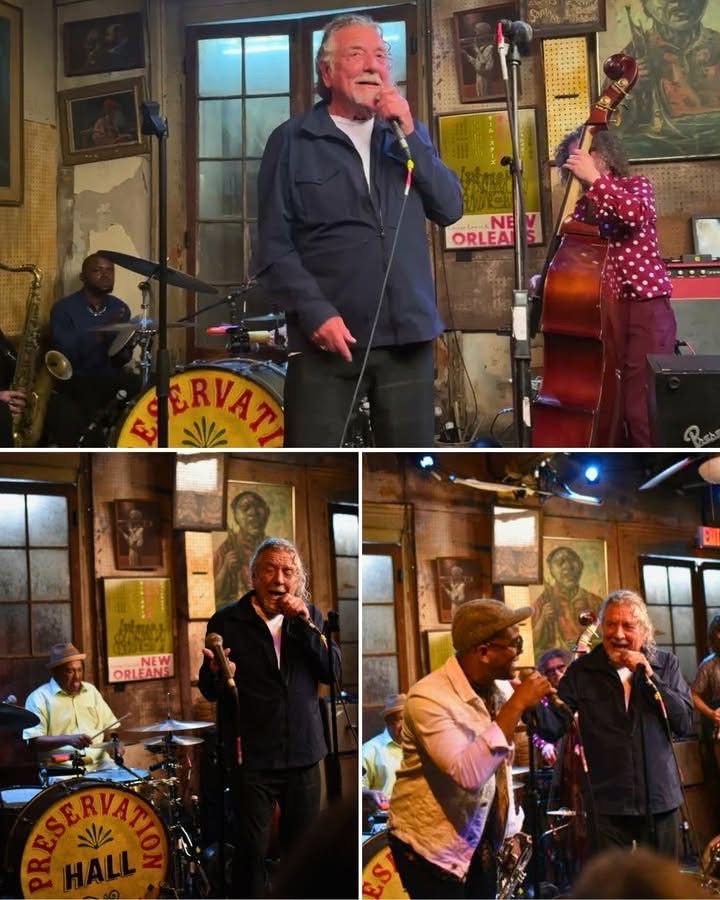In the heart of New Orleans, where music oozes from every corner like sweet molasses, Robert Plant stepped into the tiny, timeworn Preservation Hall and made magic. As part of Midnight Preserves—the Jazz Fest’s legendary late-night series known for jaw-dropping surprise collaborations—Plant transformed Led Zeppelin’s “Black Dog” into something unrecognizable yet utterly mesmerizing. Gone was the hard rock swagger of the original. In its place: a sultry, slow-burning jazz interpretation so thick with mood it felt like wading through the bayou at midnight.
Backed by the inimitable Preservation Hall Jazz Band, Plant’s vocals took on a different texture—raw, weathered, and soulful, dripping with emotion. The band’s brass section wrapped around him like smoke, turning Jimmy Page’s iconic guitar riffs into a dusky brass arrangement that swayed between blues and voodoo groove. It wasn’t just a cover; it was a resurrection—”Black Dog” reborn through the lens of New Orleans’ deep musical tradition.
Fans packed shoulder to shoulder in the intimate venue could hardly believe what they were witnessing. One attendee summed it up best: “Swampy, moody & downright delicious.” That wasn’t hyperbole—it was the sound of two musical worlds colliding with uncanny perfection. The moment felt heavy with history, as if the ghosts of Congo Square and classic rock legends were all nodding in approval.
Plant’s surprise appearance wasn’t just a Jazz Fest highlight—it was a testament to the city’s unique ability to melt genres into something greater. In that small, sweaty room, the boundaries between rock, jazz, and blues vanished. And in their place stood something new, something unforgettable. When a legend meets a legacy at the right moment, New Orleans doesn’t just host the music—it becomes the music.










